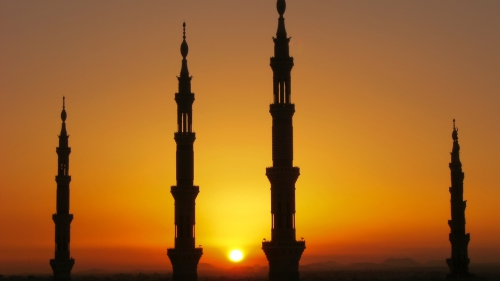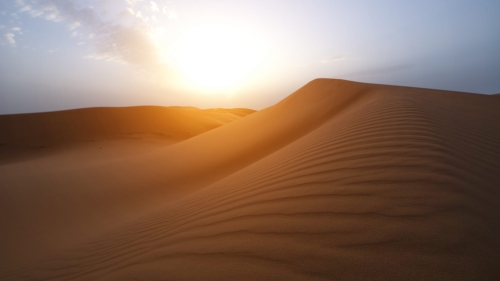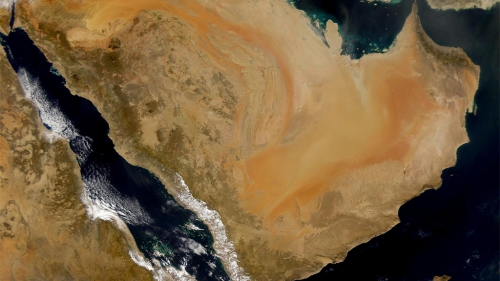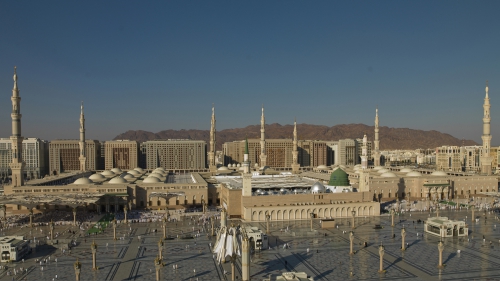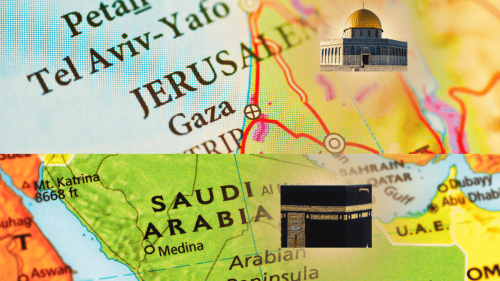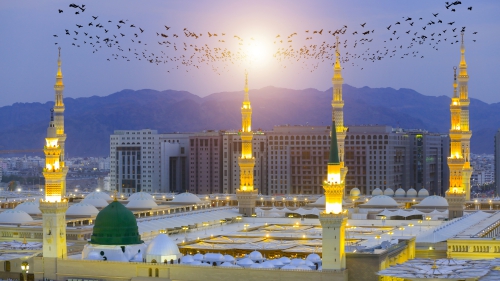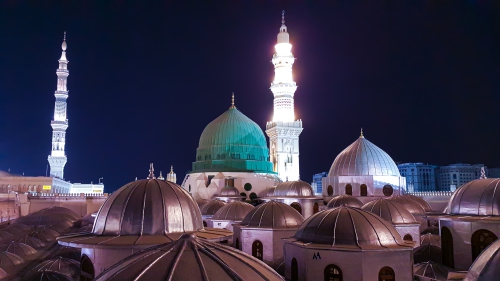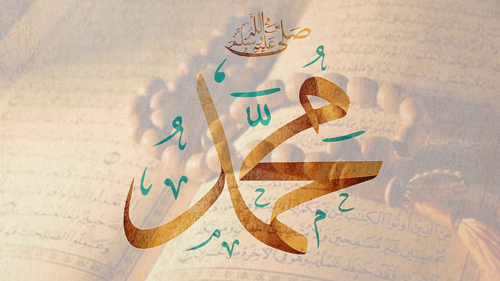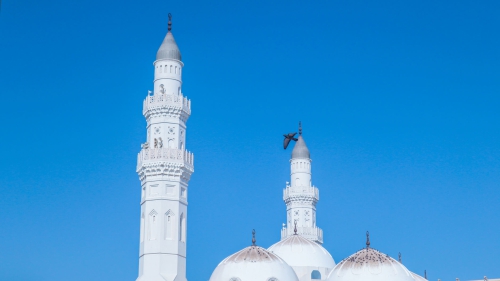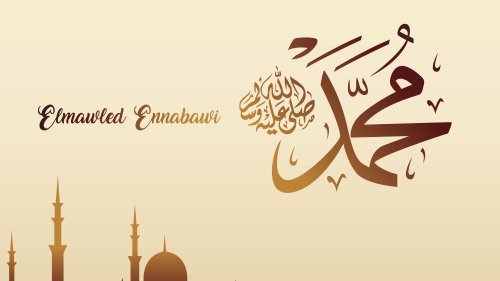The Hijrah, Urbanization and Human Development
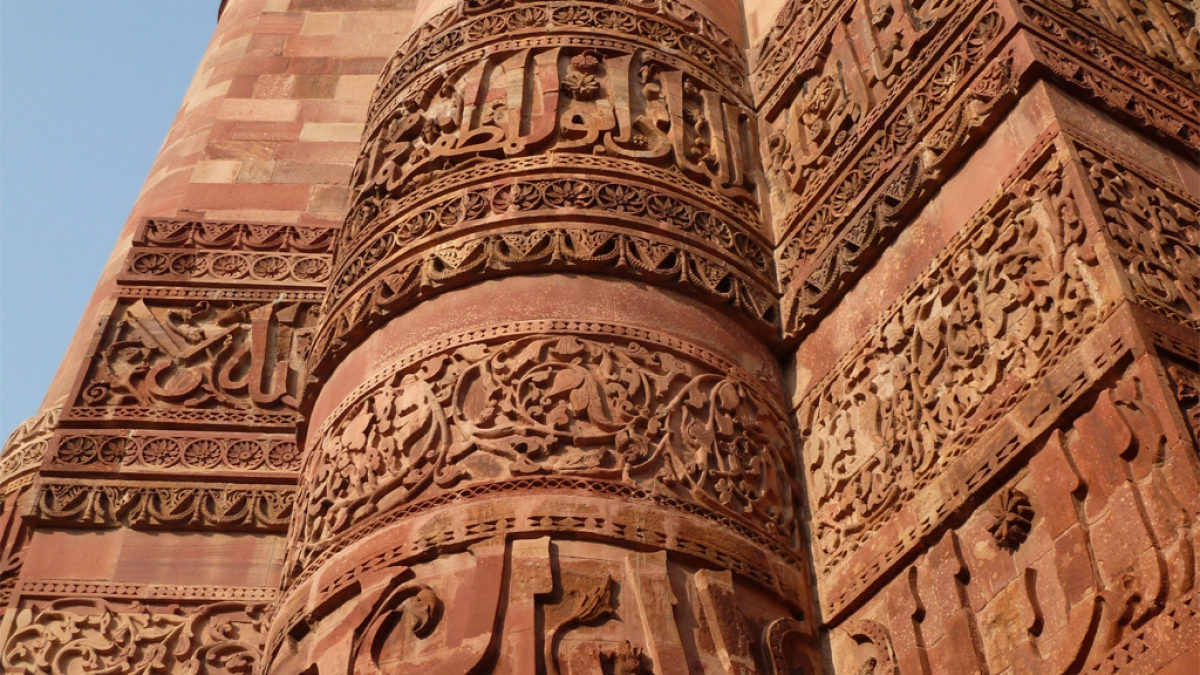
People are both the creators and demolishers of every civilizational accomplishment. They, too, are the only beneficiaries of each and every valuable civilizational upshot. Similarly, people are the creators and inhabitants of cities, a locus of civilization.
They create cities and then live and work in them. They do this either commendably, thus securing and enjoying the fruits of their right acts, so long as they stick to the right schemes which led them to such a state, or appallingly with no clear purpose or direction. In the latter scenario, things are always bound to work against the inhabitants of a city, making their lives both miserable and injurious. Allah says to this effect: "Mischief has appeared on land and sea because of (the meed) that the hands of men have earned, that (Allah) may give them a taste of some of their deeds: in order that they may turn back (from evil)." (al-Rum, 30:41)
Of the essence is thus constantly and painstakingly educating, purifying, nurturing and cherishing individuals, as well as overseeing and monitoring their progress and involvements, along the lines of an adopted worldview, philosophy and vision. This is so because individuals make up groups and societies, and they are the planners, makers, beneficiaries, consumers and sustainers, or slayers, of every civilizational triumph. They subsist at the heart of every urbanization scheme and advancement. Indeed, human development and urbanization are intertwined. They cannot be separated. Neither of them can be treated without, or at the expense of, the other.
It goes without saying that the people are the most direct causes of their own civilizational destinies. They, by and large, are fully responsible for them. Allah says, for example, that He will change the condition of a people only when they change what lies in themselves, i.e., when they change themselves first. (al-Ra'd, 31:11) He also says that He will help a people only when they "help" Him by obeying Him and by following His religion, Islam. (Muhammad, 7) This close and causal relationship between urbanization and any sort of civilizational awakening, on the one hand, and human spiritual and moral development and enlightenment, on the other, has been emphasized as a blueprint for genuine and lasting success in both worlds since time immemorial. It in fact denoted the focal point of each and every holy prophet's struggle and teachings, from Adam to Muhammad (peace be upon them all).
About Prophet Muhammad (pbuh), Allah says that he was sent in order to teach people that they "...should worship none but Allah" (Hud, 11:2), and that they should seek "...the forgiveness of your Lord, and turn to Him in repentance; that He may grant you enjoyment, good (and true), for a term appointed, and bestow His abounding grace on all who abound in merit! But if you turn away, then I fear for you the penalty of a great day. To Allah is your return, and He has power over all things." (Hud, 11:3-4)
Thus, in view of the developments that the Islamic message was living through in the city-state of Madinah, following the Hijrah, such a thing, i.e., nurturing and developing community members consistent with the values and beliefs of Islam, instantaneously attracted much of the Prophet's attention.
It should be noted that at the time of the Hijrah, the ongoing revelation of Islam was entering its 13th year and the Muslims were yet to set up a free and autonomous state of their own. Once the city of Madinah with most of its inhabitants wholeheartedly welcomed the new religion, so fiercely disapproved of by many where it had originated, the wait finally came to an end and the stage was set for broadening the focus of the young community's undertakings. As a result, the focus of revelation was likewise widened. The religion of Islam thus began to assert itself as a universal code of life overlooking no segment of human existence - a momentous development indeed after having been portrayed essentially as an inclusive belief system during the precarious episode in Makkah. From the point of development, urbanization and community building, the whole Madinah period of revelation - in particular the first half, about four to five years - was, as expected, exceptionally eventful too.
The Prophet's vision of the subject of personality and community building, as a launch pad for a wholesome urban development, was well-structured and arresting. He championed that under the auspices of Islam and its unique tawhidic worldview, the Muslims are seen as brothers to each other and their similitude is like a wall whose bricks enforce and rely on each other; they are like a solid cemented structure held together in unity and strength, each part contributing strength in its own way, and the whole held together not like a mass, but like a living organism. The Muslims are furthermore related to each other in such a way that if one of them (a part of an organic and formidable formation called the Ummah) is troubled by a problem of whatever kind, the rest of the body parts will remain disturbed and restless until the matter became solved.
Surely, for the reason of nurturing community members did the Prophet (pbuh) upon arriving in Madinah disclose to the assembled crowd some of the paths which invariably lead towards Jannah (Paradise) in the Hereafter, as well as towards individual and collective felicity in this world. Such paths are: implementing and spreading peace and concord wherever possible and by whatever lawful means, sharing and compassion, maintaining good relations with relatives (as well as with others), and praying at night when everybody else is asleep. The companion 'Abdullah b. Salam said that these were the first words he had heard from the Prophet (pbuh). Without doubt, these were among the very first advices the Prophet (pbuh) gave following the Hijrah, because 'Abdullah b. Salam was among the first to see, meet and hear the Prophet (pbuh). No sooner had he done so, than he embraced Islam, as he realized that the Prophet's face "seemed by no means like the face of a phony."
For the same reason did the content of the Prophet's sermon at the first Friday prayer (Jumu'ah) in Madinah - as well as the content of the other sermons of his at this juncture - emphasize the importance of such issues as faith (iman), taking hold of the good and leaving the evil, brotherhood, sincerity, steadfastness, gratefulness for the blessing of Islam, the significance of helping one another in righteousness and piety and not in sin and rancor, the common cause of the Muslims, and the like.
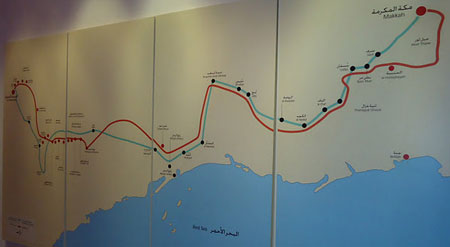
Madina & the red line is the route followed by Prophet Muhamed (PBUH)
on his journey)
Some of the underlying societal qualities and features of Islam, such as commitment to the established cause, justice, equality, and mutual understanding and cooperation, have also been manifested as early as during the exercise of determining the site of the first urban component in the city of Madinah, i.e., the Prophet's mosque, and during the marking out of its boundaries. At the earmarked location of the mosque there was a walled piece of land that belonged to some people from the Banu al-Najjar clan. The Prophet (pbuh) sent to them and asked them to suggest to him the price of the land. They replied: "No! By Allah! We do not demand its price except from Allah." The Prophet (pbuh) accepted the offer and the occurrence typified as well as inaugurated, so to speak, a new phase of the unreserved keenness of the first Muslims to sacrifice whatever they possessed for the cause of strengthening Islam and the Muslim community. Additionally, the mosque proper was about to expand into an area used for drying dates which belonged to two youths, both orphans, named Sahl and Suhayl. The Prophet (pbuh) asked them too to suggest to him the price of the place. However, when they said that they demand no price for it, the Prophet (pbuh) insisted that they tell the price, since they were orphans and possessed little. Eventually, he paid them ten golden dinars. The money was Abu Bakr's.
The Prophet's scheme of personality and community building, as an integral part of his urbanization paradigm, reached its climax when he legislated the system of mu'akhah (brotherly association) among the Migrants (Muhajirs) from Makkah and Helpers (Ansar) from Madinah. The mu'akhah included 90 men, 45 from either side. While some claim that the mu'akhah took place after the building of the Prophet's mosque, albeit before the battle of Badr, others contend that it in fact occurred during the process of building the mosque. The mu'akhah was accomplished in the house of Anas b. Malik. So binding was the treaty that the Migrants for sometimes were the heirs of the Helpers, and vice versa, instead of their own kindred by blood. Later, however, the verse 33 from the Qur'anic chapter al-Nisa' was revealed and the matter of the Migrants and Helpers inheriting one another was cancelled.
Shortly after arriving in Madinah, the Prophet (pbuh) also organized the relationship between the various inhabitants of Madinah, including the Jews, and recorded it in a document (the Constitution of Madinah). The commitments of each group within Madinah and its rights and duties were comprehensively enshrined in the document. That the society of Madinah was founded and was set to progress on the basis of commitment, love, mutual understanding, cooperation and support, was thus demonstrated in a striking applied fashion. As was the Islamic perception of believers envisaging them in their mutual love and affection as one entity whose components depend on and complement each other.
Furthermore, nurturing and developing exemplary community members in the young and constantly evolving city-state of Madinah was dealt with by God's direct interventions as well, by means of prescribing guidelines and directives that targeted at both men's and women's steady spiritual and moral development, as well as at clearly defining their roles and standings in the community.
For example, in the night of al-Mi'raj, which occurred sometime between one and two years before the Hijrah, the institution of prayer (Salah) was prescribed to the Muslims. The prayers of those not traveling and of those traveling had both been of two rak'ahs, except the Maghrib (sunset) prayer which was of three rak'ahs from the beginning. But about a month after the arrival of the Prophet (pbuh) in Madinah, two rak'ahs in Zuhr (noon), 'Asr (mid afternoon) and 'Isha' (evening) prayers were added to the prayers of those who were not traveling.
Certainly, this addition which came to pass in Madinah immediately after the Hijrah had scores of benefits for the spiritual and civilizational maturity of many Muslims, some of whom had just entered the fold of the new Islamic code of living, given that the task of one's prayers is to restrain one from shameful and evil deeds (al-'Ankabut 29:45) and to foster honesty, goodness, conformity and dedication. As the Prophet (pbuh) experienced a midnight journey from the al-Masjid al-Haram to the al-Masjid al-Aqsa (al-Isra'), whence he traveled to the seven heavens (al-Mi'raj) where the prayer commandment was decreed, every human soul similarly ought to undergo a journey of its own in its religious growth in life. Praying five times a day at the divinely appointed times and as many rak'ahs as God asked us to take on - which in fact signifies conversing with our Lord and Sustainer, plus powering our soul and mind with the spirit of Truth - is the most invaluable asset that one may possess all through the long and thorny journey. Every single prayer is thus expected to elevate its executor a step or a degree off the wickedness and the confines of this world and towards a spiritual fulfillment. So, the bigger number of those who willingly and enthusiastically tread on the said spiritual journey, ever ready to better themselves and those around them, the better the prospects for their ideals to materialize and flourish become. With such people aboard, imposing a struggle for the supremacy of God's Word as the sole objective of existence will never be an impossible proposition, as plainly shown by the history of the Madinah city-state and by the history of other successful Islamic societies.
For the purpose of creating healthy and upright individuals who will constitute a healthy and virtuous society, the prescription of Adhan (calling to prayers), Siyam (fast), Zakah (the alms), Sadaqah al-fitr (charity of fast-breaking), Jihad (struggle for the holy cause), and some other legislative moves with regard to halal (lawful) and haram (forbidden) - all these came about as well during the earliest Madinah period. Although the city-state of Madinah was just about a few years old, yet some of the most crucial and decisive aspects of the individual, family and societal life have already been duly taken up. The aspect of urban development was just a dimension in a multidimensional cultural and civilizational mission undertaken by the Prophet (pbuh) and his followers.
This article is an excerpt from the author's book "Prophet Muhammad (pbuh) and Urbanization of Madinah"
Dr. Spahic Omer is a Bosnian currently residing in Malaysia, is an Associate Professor at the Kulliyyah of Architecture and Environmental Design, International Islamic University Malaysia. He studied in Bosnia, Egypt and Malaysia. His research interests cover Islamic history, culture and civilization, as well as the history and philosophy of the Islamic built environment. His blog is at www.medinanet.org.
Topics: Hijrah (Migration), Madinah (Medina)
Views: 16617
Related Suggestions






